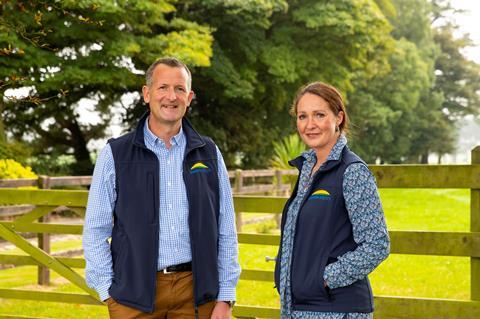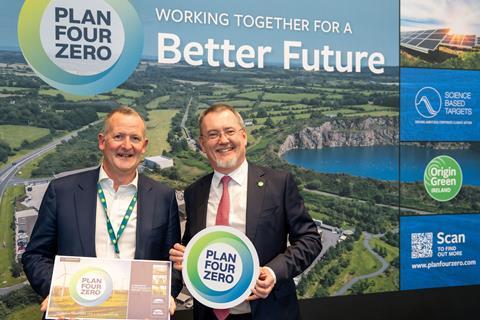Dawn Meats has reported that it has achieved a 63% reduction in Scope 1 and 2 emissions over a period of six years.

In a report, it highlighted that the reduction had been achieved from 2018 to 2024 as part of the company’s €100 million-plus Plan Four Zero sustainability strategy, which includes a target of reaching operational Net Zero by 2040. The report covered the 18-month period from January 2024 to June 2025.
The meat processor claimed that the company had saved enough water to fill over 1,272 Olympic-size swimming pools and had increased the volume of waste recycled, reused and recovered to 75%.
Dawn Meats said it planned to roll out solar installations at its sites in the UK and Ireland, following the successful installation of solar PV panels at the company’s Irish headquarters in Grannagh, Co Waterford.
Niall Browne, chief executive of Dawn Meats, said: “At Dawn Meats and Dunbia, we are committed to providing consistent, high quality meat products from sustainable sources to support our rural communities. For over 45 years, sustainability has been at the forefront of our operations in Ireland and in the UK.
“Driven by our commitment of €100 million to the Plan Four Zero strategy, we continue to collaborate with industry and supply chain partners to improve the sustainability of our products and remain competitive in the global marketplace.”
Gill Higgins, sustainability director at Dawn Meats, said: “At Dawn Meats and Dunbia, we are continuously innovating to advance towards our sustainability targets. This report reflects the united efforts of our 8,000 staff members in achieving our shared progress.
“Our Plan Four Zero strategy ensures our actions remain focused on addressing the most pressing challenges within the industry and work cross functionally to implement the plan. As a business, we are proud of the exceptional teamwork and collaboration which has helped us to execute our sustainability strategy and deliver against our goals.”
Key developments
Dawn Meats said that since 2020, it had sourced 100% renewable electricity to power its sites and in 2024 the company implemented 26 capex projects and system upgrades, which reportedly saved 5.8 kWh per year. Since 2016, Dawn Meats stated that it has saved enough energy to power 22,274 homes for a year.
As well as this, in 2024 the business has saved 18,000m3 of water as part of ongoing capital expenditure projects and system upgrades. At the start of 2024, the company increased its target for the volume of waste recycled, reused and recovered from 60% to 70% by 2030, and said the latest data showed that it had exceeded this target and the volume of waste being recycled, reused and recovered is now 75%.
Dawn Meats went on to say that it had removed more than 3,000 tonnes of plastic since 2016, with initiatives including the introduction of fibre-based options for meat trays and the development of right-size trays for products. Its mince packaging was up to 63% lighter, and preform trays up to 35% lighter.
From 2018 to 2024, the company achieved a 9% reduction in Scope 3 emissions intensity mainly due to a reduction in the average carbon footprint on the assured farms that supply products to Dawn Meats.

More than 500,000 cattle are in Dawn Meats’ emissions monitoring programmes at any one time and 60% of cattle suppliers are participating in emissions monitoring programmes, while in Ireland, Bord Bia carbon footprints over 96% of Dawn Meats’ Irish cattle suppliers who are members of the Sustainable Beef and Lamb Assurance Scheme.
From 2018 to 2024, the average carbon footprint of the farms supplying Dawn Meats decreased from 18.74kgCO2e per kg carcass to 18.26kgCO2e per kg carcase, as more farms adopted a range of practice changes recommended in the Teagasc Marginal Abatement Cost Curve.
In June 2024, Dawn Meats launched a new incentivised sustainability programme for beef farmers, supported and co-funded by McDonald’s UK & Ireland. The Activate Ireland initiative involves a total investment of €4.4 million over three years and provides payments to participating farmers for successfully implementing agreed sustainability plans and reducing emissions. Bord Bia, the Irish Cattle Breeding Federation (ICBF) and Teagasc also support the programme.















